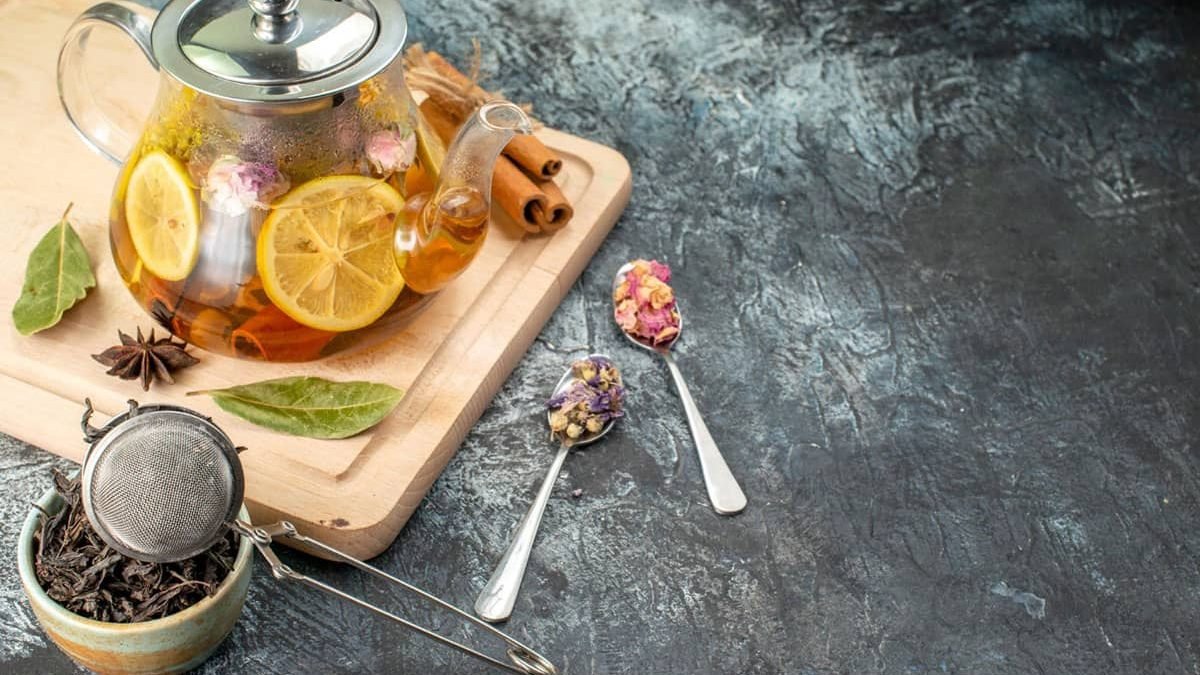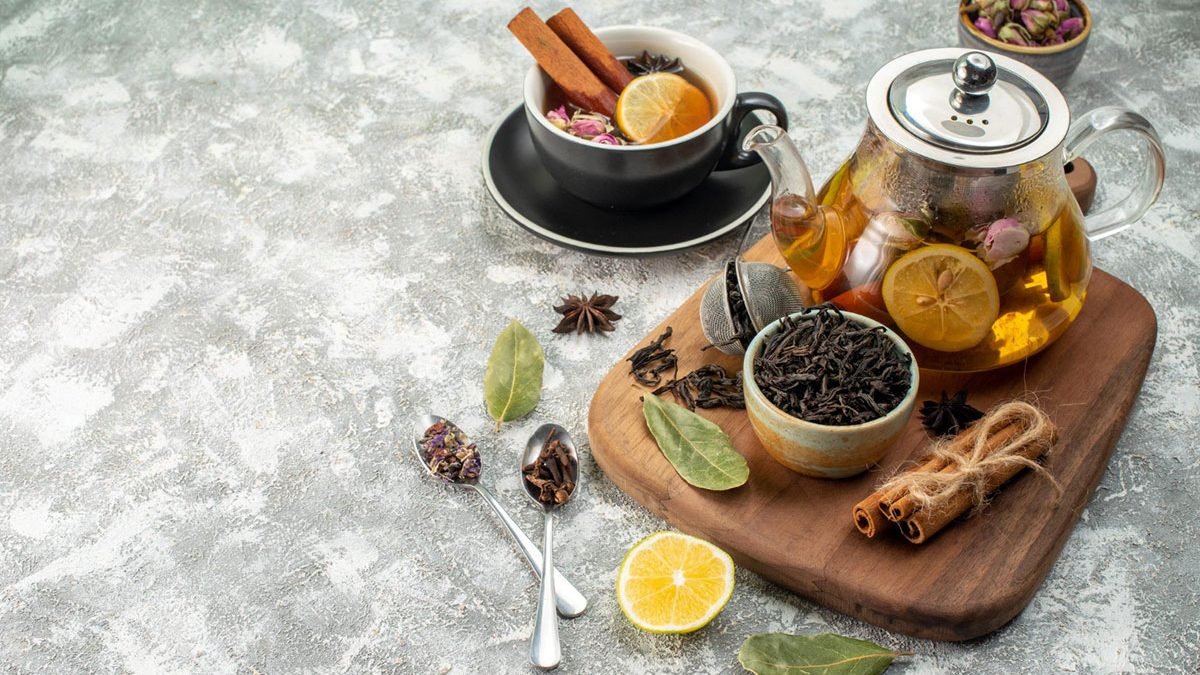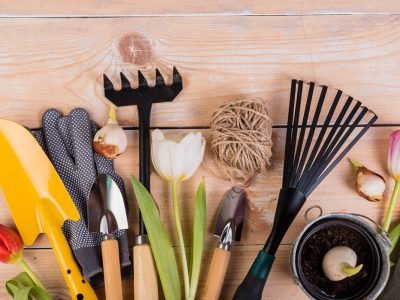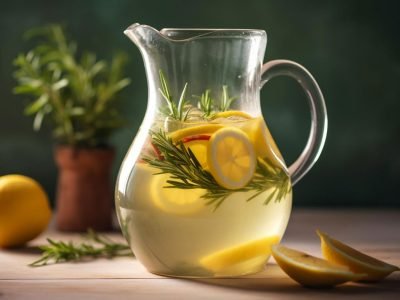Top 12 Spices You Must-Have in Your Kitchen
We have curated a list of the top 12 spices every food lover should have in their pantry. With countless varieties available, navigating through a world full of flavors can be overwhelming.
Whether you’re an adventurous cook looking for new taste sensations or simply enjoying spicing up your favorite recipes, these ten spices will elevate your cooking game and tantalize your taste buds like never before.
Spices have been an essential part of human cuisine for centuries, adding flavor, depth, and complexity to dishes from around the globe. From the fiery heat of chili peppers to the warm aroma of cinnamon, spices can transform ordinary meals into extraordinary culinary experiences.
These natural wonders not only enhance the taste of our dishes but also possess numerous health benefits that have been valued since ancient times. From exotic flavors to medicinal properties, spices are a treasure trove of goodness waiting to be explored.
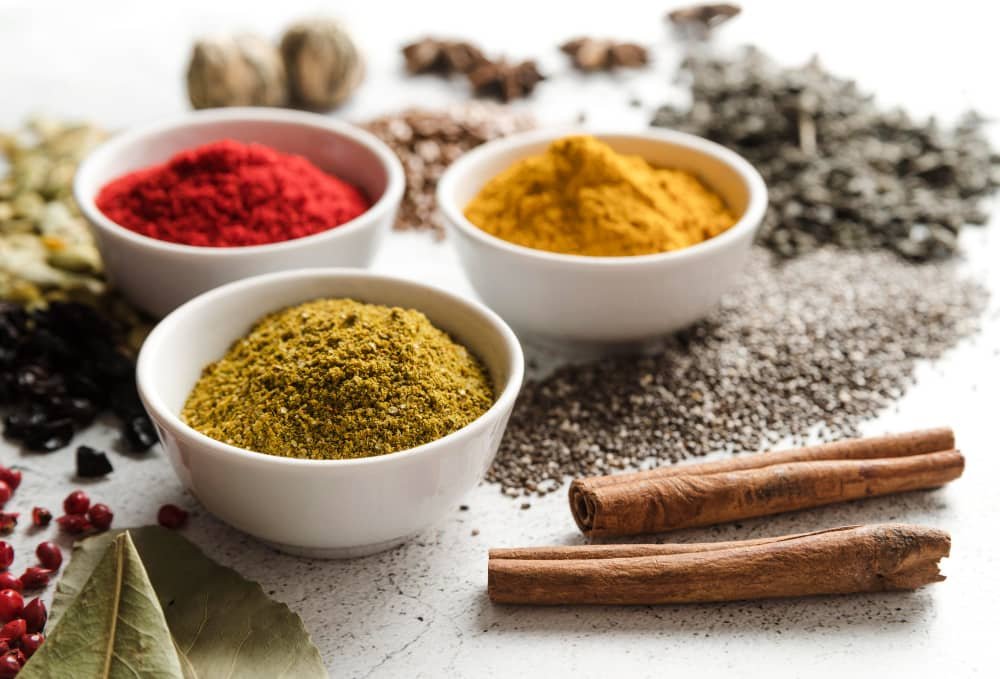
What Are Spices?
Whether you are a fan of fiery heat, subtle fragrances, or robust savory notes, these essential spices will elevate your cooking game and tantalize your taste buds like never before.
“Culinary skills” can be broadly defined as the ability to successfully prepare meals and other food items. A good set of culinary skills can be a great asset to any home chef, enabling them to create delicious and nutritious meals for their family and friends.
While there are several aspects to being a successful home chef, one of the most important elements is having the right spices in your kitchen.
Spices can turn any bland recipe into a flavorful dish, and having the right combination can differentiate between a good dish and a great one. They can also be used to enhance the nutritional value of a recipe, as many spices contain vitamins and minerals that can help improve the overall health of a dish. You can easily take your culinary skills to the next level with the proper selection of spices.
This article will discuss the top 10 must-have spices in your kitchen. We’ll also discuss the correct ways of storing these spices, different considerations when selecting them, and the benefits of having spices in your kitchen. Finally, we’ll look at spice blends and how they can help you create unique flavors.
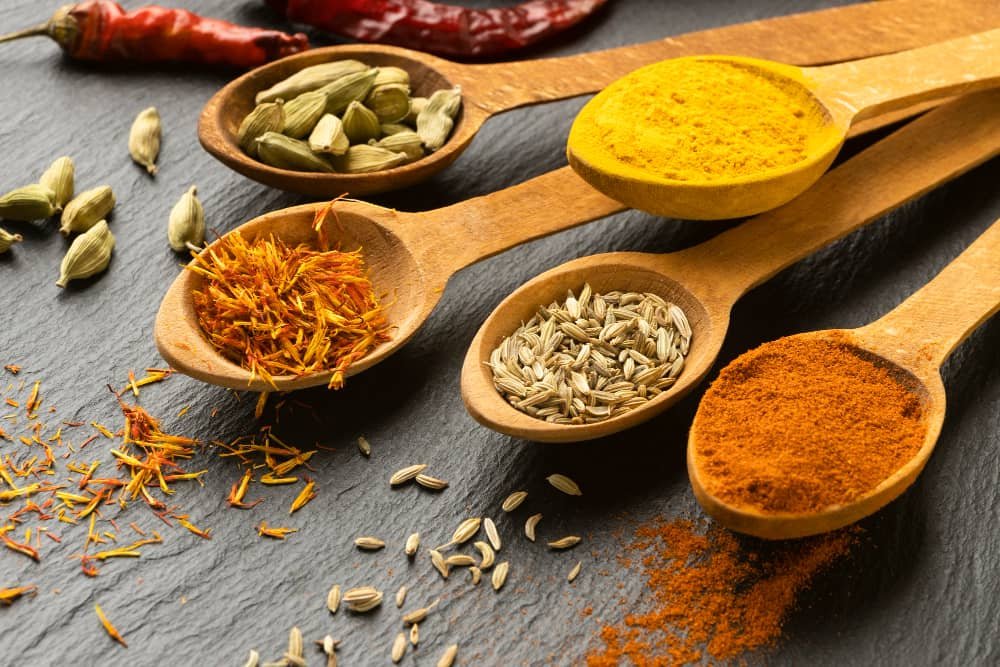
Top 12 Spices You Must-Have
So, without further ado, let’s dive into the world of spices and discover the top 12 spices you must-have in your kitchen.
Spices are the key to unlocking flavor in the food you prepare. Whether you are a gourmet chef, a novice home cook, or someone who wants to add a little flavor to their meals, having a variety of spices on hand should be an essential requirement. Here are the top 12 spices every kitchen should have to enhance your culinary skills:
Black Pepper
This is a must-have for any kitchen. Black pepper is used to season various dishes and is popular in savory and sweet dishes. It also has a range of health benefits, including anti-inflammatory properties.
Garlic Powder
This versatile seasoning can season almost anything, from vegetables to meats and sauces. It adds a savory flavor to dishes and is a great way to enhance the flavor of your food without adding too much sodium.
Paprika
Paprika is a mild spice made from dried peppers. It adds a vibrant color and smoky flavor to dishes. Paprika is often used to add a little kick to dishes and is a great way to add flavor without much heat.
Cumin
Cumin is used in many Latin American dishes and is a great way to enhance the flavors of your food. It adds a smoky flavor and slight heat to dishes and is perfect for adding depth to sauces, soups, and stews.
Nutmeg
Nutmeg is a fragrant spice that is often used in baking and desserts. It adds a warm, sweet flavor to dishes and can be used to season savory dishes.
Curry Powder
Curry powder is a blend of herbs and spices that adds a rich flavor to dishes. It is used in Indian and Southeast Asian dishes and is a great way to add depth and complexity.
Turmeric
Turmeric is a bright yellow spice that is commonly used in Indian cuisine. It has a mild, earthy flavor and is often used to enhance the flavor of curries and stews.
Cayenne Pepper
Cayenne pepper is a hot spice that adds a bit of heat to dishes. It adds a bit of a kick and is a great way to add some flavor to your dishes.
Rosemary
Rosemary is a woody herb with a strong, pungent flavor. It is often used to season meats, vegetables, and potatoes and adds a unique flavor to dishes.
Oregano
Oregano is a fragrant herb that has a slightly peppery flavor. It is often used in Italian cuisine and adds a unique flavor to dishes.
Cinnamon
Cinnamon is a sweet, fragrant spice used in sweet and savory dishes. It is a popular ingredient in baking and can add flavor to various dishes.
Thyme
Thyme is a fragrant herb with a slightly bitter flavor. It is a popular ingredient in Mediterranean dishes and is perfect for adding flavor to soups, stews, and sauces.
Having a variety of spices in your kitchen is crucial in enhancing your culinary skills. These 12 spices are must-haves for any kitchen and can help you create delicious and flavorful dishes.
Storage & Selection of Spices
Proper storage of spices is crucial in maintaining its flavor and aroma. To ensure your spices remain fresh and flavorful, it is essential to store them in airtight containers away from heat, moisture, and direct sunlight. Consider investing in an organized storage system such as a spice rack or jar set to make identifying and accessing your spices easy.
When selecting spices, consider their quality, freshness, and origin. Quality is essential for extracting the maximum flavor from your spices, and the fresher your spices, the more intense their flavor. Regarding origin, certain spices may be better suited to certain dishes and cuisines. Do some research and find out the best sources of spices available to you.
When buying spices in bulk, check the expiration date, and always buy organic spices whenever possible. If you don’t need a large quantity of spices, purchasing smaller amounts at local markets or specialty stores is a good idea. This helps you ensure the freshness of the spices and the quality.
Another factor to consider when selecting spices is the method of preparation. Some spices are in pre-ground forms, while others are whole seeds. The method of preparation can influence the flavor of the spices. For example, whole spices have a more intense flavor than pre-ground ones.
When purchasing pre-ground spices, make sure to check the label for additives. If possible, avoid pre-ground spices with added preservatives or coloring.
Finally, consider the amount of spice you will need for a dish. Usually, spices are used in small quantities, so buying only what you need for a single dish is essential. Spices can lose their potency over time, so you should buy only what you need and use it quickly.
Benefits of Having Spices in Your Kitchen
Spices are essential to any kitchen and have been used to flavor dishes for centuries. From black pepper to garlic powder, paprika to cumin, having these ingredients on hand can help you unlock new levels of flavor. But that’s not all spices can do. Here are some significant benefits of having spices in your kitchen.
Adding Flavor to Dishes:
The most significant benefit of having spices in your kitchen is their ability to flavor any dish. Whether a simple stir-fry or a complex curry, just a pinch of the right spice can make all the difference; with the right blend of spices, you can create dishes sure to please your taste buds.
Enhancing Nutritional Value of Dishes:
Spices don’t just make food taste great; they also add essential vitamins and minerals to your dishes. For example, paprika is an excellent source of Vitamin A; garlic powder is rich in Vitamin C; and cumin contains high levels of iron. Not only do these vitamins and minerals contribute to a healthier diet, they also help to enhance the flavor of your dishes.
Enhancing the Overall Quality of Dishes:
By adding spices to your recipes, you can enhance the overall quality of your dishes. Spices can act as natural preservatives, helping keep food fresh and preventing spoiling. In addition, spices can add a touch of texture and color to dishes, making them more visually appealing.
Using spices is a great way to make your dishes more flavorful while increasing their nutritional value and overall quality. With the proper selection of spices, your meals will be sure to impress.
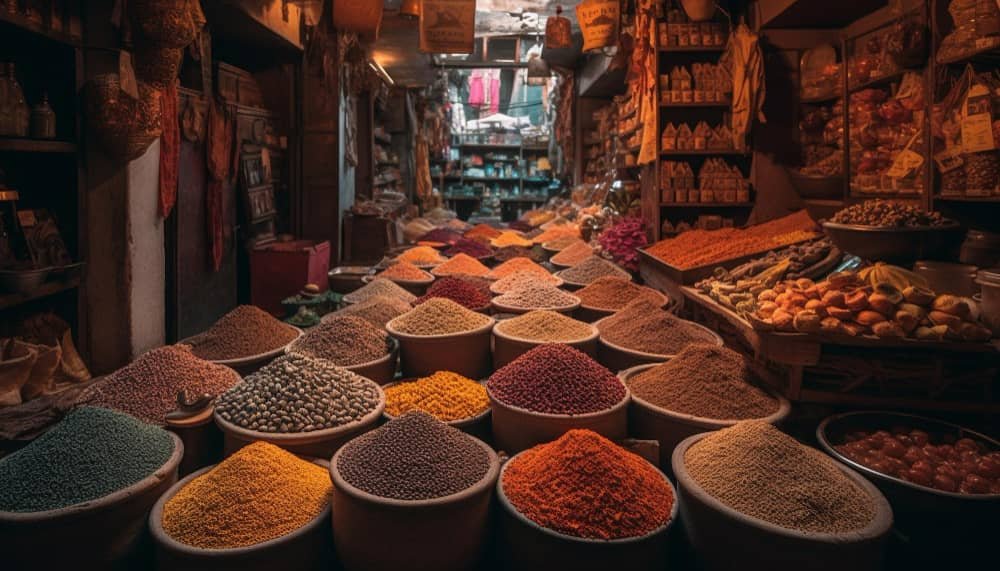 Spice Blends
Spice Blends
To truly become a master of spices, you must also develop your knowledge of spice blends. A spice blend combines spices, creating an incredibly flavorful and fragrant addition to any recipe. Different spice blends can be used to enhance the flavor of dishes worldwide or create your own custom flavor combinations.
When developing a custom blend, it’s essential to consider the balance of flavors. Different spices have different intensity levels, and blending those can create exciting flavor profiles. A good spice blend should also have a balance of warm and cool spices and tastes that are sweet, savory, and even a little bit of heat.
For instance, a popular North African spice blend called Ras el Hanout typically includes sweet spices like nutmeg and cinnamon, savory spices like black pepper and cumin, and hot spices like cayenne pepper.
This combination creates a complex flavor profile that is great for traditional recipes from the region and adds a unique flavor to your dishes.
When starting, it can be helpful to experiment with a few pre-made blends to get a feel for their flavor profiles. This will help you understand different spice notes, and you may even find a new favorite blend. Once you’re comfortable, you can start creating your blends.
To create a custom blend, it’s essential to start with a base of familiar spices and then experiment with lesser-known ones until you find the right combination. Start with a few teaspoons of each spice, and adjust the amount as you mix them. If you find the blend too spicy, add more sweet or nutty spices to mellow it out.
It can also be helpful to look at traditional spice blends worldwide for inspiration. For example, Za’atar is a popular Middle Eastern spice blend that typically includes thyme, oregano, marjoram, and sumac. Other popular blends include Italian herbs, Caribbean jerk seasoning, and Chinese five-spice.
Creating custom spice blends is a great way to take your culinary skills to the next level and add unique flavors to your dishes. With some experimentation and knowledge of different spices, you can easily create your custom spice blend that will take your cooking to the next level.
Conclusion
Developing culinary skills and having the right spices in your kitchen can make a difference in the outcome of your dishes. Spices in your pantry can add flavor, nutrition, and overall quality to your meals. Not only that, but you can also create your unique spice blends to take your dishes to the next level.
When it comes to having spices in your kitchen, it’s essential to practice proper storage of spices and ensure they are of good quality before purchasing. When selecting spices, consider the type of dish you’re making, your desired flavor, and any allergies you might have.
Having culinary skills and the right spices can enhance your dishes. Experimenting with flavors and creating unique spice blends can truly make a difference in how your dishes taste. Take the time to explore the vast array of spices, and you’ll find the perfect combination for your dishes.
We hope this article has given you an overview of the must-have spices for your kitchen. We encourage you to use spices to take your culinary skills to the next level. Don’t be afraid to mix and match spices to create your unique flavor. With the right spices, you’ll be sure to make unique dishes in no time.
Post Disclaimer
The information contained in this post is for general information purposes only. The information is provided as is and while we endeavour to keep the information up to date and correct, we make no representations or warranties of any kind, express or implied, about the completeness, accuracy, reliability, suitability or availability with respect to the website or the information, products, services, or related graphics contained on the post for any purpose.
These statements have not been evaluated by the FDA and are not intended to diagnose, treat, cure or prevent any disease or health condition. If you have specific healthcare concerns or questions about the products displayed, please contact your licensed healthcare professional for advice or answers.



